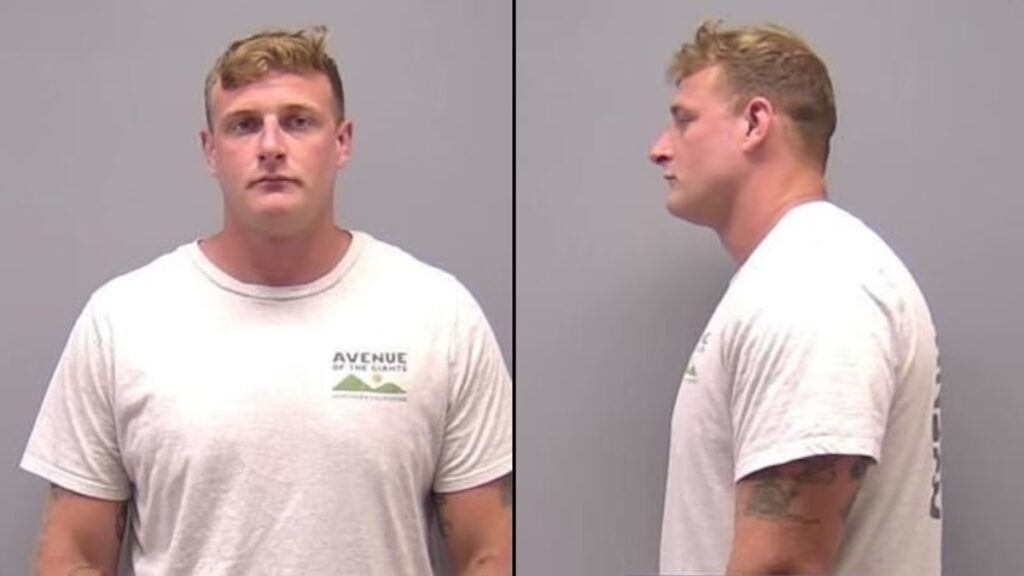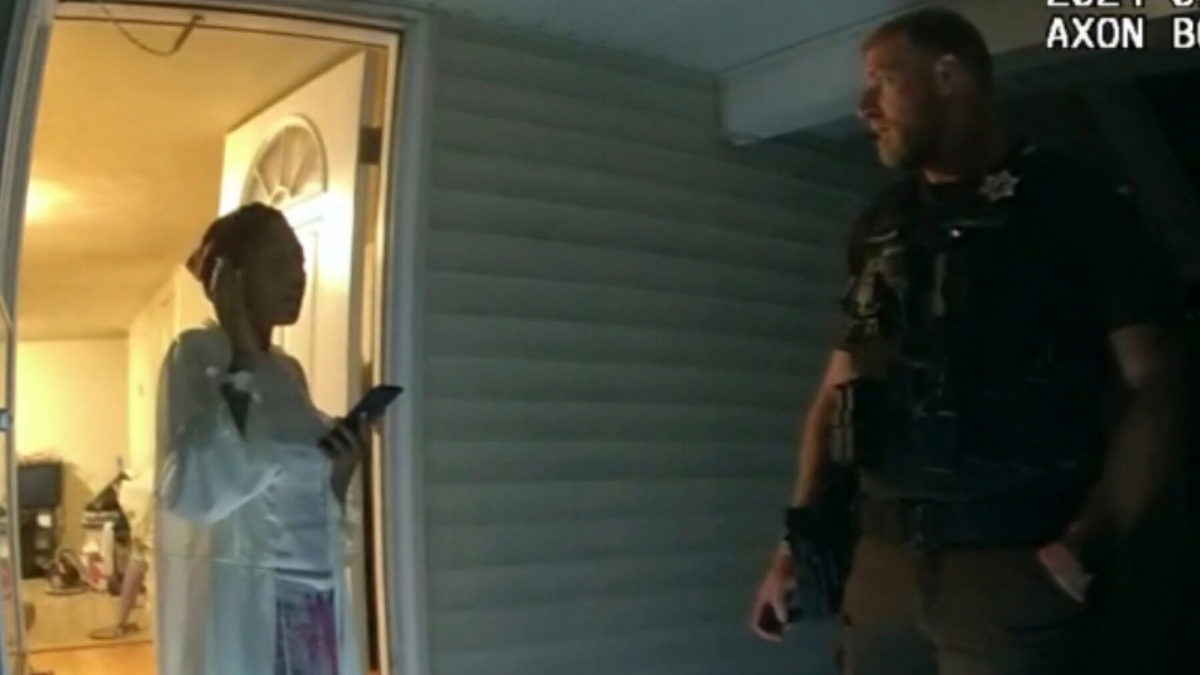Sean Grayson conviction has sent shockwaves across Illinois — and the country.
After months of emotional testimony, a former deputy was found guilty of second-degree murder for the killing of Sonya Massey, a 36-year-old woman who simply called 911 for help.
Her final words — “I rebuke you in the name of Jesus” — are now etched into the hearts of millions following the trial.
Sean Grayson Conviction Marks a Turning Point in a Painful Case
When the verdict was read inside the Springfield courthouse, there was silence — then tears.
Grayson, once a Sangamon County Sheriff’s deputy, stood motionless as the jury found him guilty of second-degree murder.
He had responded to Massey’s 911 call on July 6, 2024, after she reported a possible intruder. But within minutes, that call for help turned into a fatal confrontation caught on another deputy’s body camera.
According to ABC News, Massey picked up a pot of boiling water from her stove when Sean Grayson suddenly fired three shots, hitting her in the face and neck. She died on the spot — in her own kitchen, in front of the officers she thought would protect her.
The courtroom wept as the footage played.
A Tragic 911 Call That Changed Everything
Prosecutors painted a haunting picture. Massey wasn’t threatening; she was afraid.
Her calm voice on the 911 call — followed by chaos — became one of the most powerful moments in the trial.
Grayson’s defense claimed he acted in fear, believing Massey might throw the water at him. But jurors didn’t buy it. The shooting, they decided, wasn’t justified.
“He had a badge, a gun, and a choice,” the prosecution said. “And he chose wrong.”
Those words seemed to hang in the air long after the verdict was read.
What Grayson Faces Next
Grayson was initially charged with first-degree murder, but jurors settled on the lesser second-degree charge — still a serious felony under Illinois law.
He now faces 4 to 20 years in prison, though it’s possible the judge could consider probation, depending on the circumstances.
Sentencing is set for January 29, 2026, according to Reuters.
That date already feels heavy. For Massey’s family, it’s another countdown they never wanted to face.
Why This Case Hit So Deeply
The shooting of Sonya Massey, a Black woman in her own home, reignited painful questions about police accountability.
Why wasn’t Grayson’s body camera activated?
Why was he hired after reports of past disciplinary issues at other departments?
Those questions became the heart of Illinois’ growing frustration. Even officials admitted the system had failed to catch warning signs before tragedy struck.
It’s not just about one deputy anymore — it’s about how someone with a badge could move quietly between agencies, despite red flags.
As one Springfield resident told a reporter, “If this can happen in her kitchen, what does ‘safe’ even mean?”

Inside the Courtroom: Grayson’s Still Face and the Family’s Tears
Reporters described Grayson’s expression as blank, almost disconnected, as the verdict came down.
Across the aisle, Massey’s family — mother, siblings, cousins — collapsed into one another.
They’d waited 15 months for accountability, and when it finally arrived, it was bittersweet.
Outside the courthouse, Sonya’s mother said softly to the cameras, “We didn’t win. We just got a little piece of justice.”
That line spread fast online — not as anger, but exhaustion. The kind that comes from waiting too long for fairness.
Community Reaction: Justice or Just Another Headline?
Illinois officials, including community leaders and local lawmakers, praised the verdict as a step toward accountability in law enforcement.
But others say the sentence still feels too light. Many had hoped for a first-degree murder conviction, not a downgraded one.
Social media lit up with posts like:
“She called 911 for help. That’s all. And he shot her.”
“Accountability shouldn’t depend on how clean the footage is.”
The case has already become a touchstone for discussions around police reform, body camera policies, and mental health response training.
One local pastor put it simply: “If it takes a video to get a conviction, then what about all the times there isn’t one?”
The Broader Ripple Effect
Grayson’s conviction isn’t just a courtroom win; it’s a cultural reckoning.
It’s sparking real conversations in police departments about vetting, retraining, and community trust. Some departments are reviewing their background check processes, ensuring officers with past misconduct can’t just start over somewhere new.
And in Springfield, murals and vigils keep Sonya’s memory alive — not as a victim, but as a reminder.
Her neighbors still leave flowers near her apartment, where she once called for help.
The Sean Grayson conviction feels like both justice served and heartbreak renewed.
A uniform doesn’t erase humanity — and a badge doesn’t make fear a license to kill.
For Sonya Massey’s family, it’s not closure. But it’s a start.
As one juror told The Washington Post, “We can’t give her back her life. But maybe this time, someone will learn from it.”
And maybe — just maybe — that’s how healing begins.
Stay in the know with the latest celebrity news on The Graval Trending.
Nishant Wagh is the founder of The Graval and a seasoned digital journalist with over 15 years of experience covering entertainment, media, and culture. He specializes in breaking news and trending stories told with accuracy, context, and depth.




